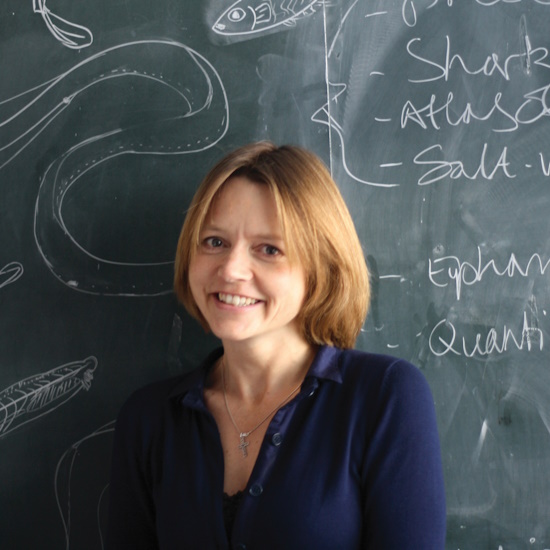Sedimentology of plastics: state of the art and future directions
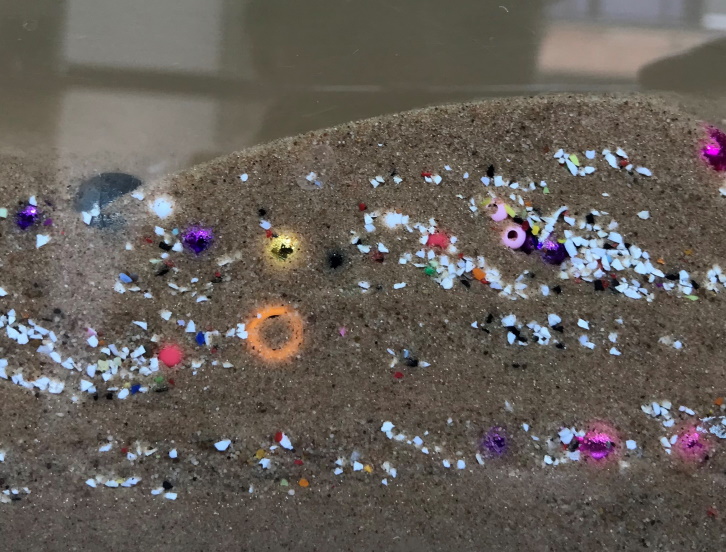
Theo Murphy meeting organised by Professor Gary Hampson, Dr Catherine Russell, Dr Ian Kane, Dr Michael Clare, Professor Sarah Gabbott and Professor Matthew Jackson.
This multi-disciplinary workshop brings together researchers with interests in how plastic behaves as a sedimentary material. Understanding how, where and when plastics are transported, break down and accumulate in the natural environment requires sedimentary geoscience research to be integrated with contributions from material scientists, chemical engineers and chemists, experimentalists, fluid dynamicists and biologists.
The schedule of talks and speaker biographies is available below. Speaker abstracts will be available closer to the meeting date.
Poster session
There will be a poster session on Monday 18 March 2024. If you would like to apply to present a poster please submit your proposed title, abstract (not more than 200 words and in third person), author list, name of the proposed presenter and institution to the Scientific Programmes team no later than Monday 12 February 2024. Please include the text ‘Poster abstract submission’ in the email subject line. Please note that places are limited and posters are selected at the scientific organiser’s discretion.
Attending this event
This event is intended for researchers in relevant fields and is a residential meeting taking place at Conference Aston, Aston Street, Birmingham, B4 7ET. The nearest train stations are Birmingham New Street, Birmingham Snow Hill and Birmingham Moor Street.
- Free to attend
- Advance registration essential (please request an invitation). Registration will close on Monday 26 February.
- This is an in-person meeting
- Catering options are available to purchase during registration. Participants are responsible for their own accommodation booking.
To view the programme, please scroll down and select the day on the left-hand side. Click the arrows to view the speakers and talks.
Enquiries: contact the Scientific Programmes team
Organisers
Schedule
| 09:00-09:05 |
Introduction
|
|---|---|
| 09:05-09:30 |
Characterisation of micro- and nanoplastics: analytical challenges
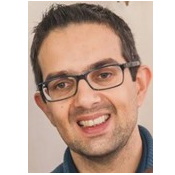
Dr João Pinto da Costa, University of Aveiro, Portugal

Dr João Pinto da Costa, University of Aveiro, PortugalJoão Pinto da Costa is an Assistant Researcher at Department of Chemistry and CESAM, at the University of Aveiro (Portugal). Presently, his research focuses on the development of strategies for the adequate assessment of the prevalence of emerging contaminants, namely, (micro)plastics, as well as their fate and behavior in the environment. He is also particularly interested in bio-based approaches for the mitigation of plastic contamination (biodegradation of microplastics). João graduated in Biotechnological Engineering from the University of the Algarve (UAlg, Portugal), and, soon thereafter, successfully completed his Masters Degree in Medical Diagnostics at Cranfield University (UK). In 2014, he obtained his PhD in Environmental Chemistry, from UAlg. In recent years, João has had the opportunity to develop research activities in a wide field of areas, including Proteomics, Nanotechnology, Bioremediation, Food Technology and Biosensing Applications. Currently, João is the author or co-author of over 75 publications, with an h-index of 35. |
| 09:30-09:45 |
Discussion
|
| 09:45-10:15 |
What can we learn from clastic sediment particles to improve our understanding of microplastic transport?
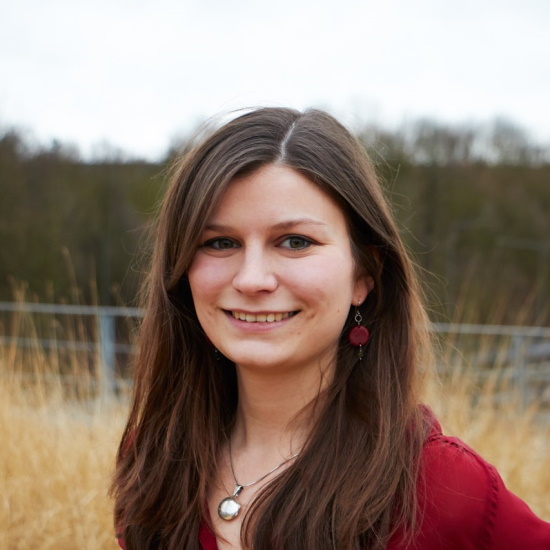
Dr Kryss Waldschläger, Wageningen University, The Netherlands

Dr Kryss Waldschläger, Wageningen University, The NetherlandsDr Waldschläger studied civil engineering at RWTH Aachen University in Germany and their interest in microplastics was sparked during their MSc thesis, in which they modelled marine microplastic transport influenced by a functional architecture. During this process, they realised that we still know far too little about the fundamental transport processes of microplastics, which are important basics to understand the distribution and accumulation of microplastics in the environment and to take measures to reduce environmental plastic pollution. They therefore decided to do a PhD on this topic, in which they compared the behaviour of microplastics in the fluvial environment with theoretical calculations from classical sediment transport using physical model experiments. The transport process was divided into resuspension, sedimentation and rising as well as infiltration into the river bed. Special attention was paid to the effects of microplastic particle properties such as density, diameter and shape on the transport mechanisms. After finishing their PhD in December 2020, they were appointed as an assistant professor for fluid mechanics at the Hydrology and Quantitative Water Management Group at Wageningen University & Research in the Netherlands where they continue their work on the transport of microplastics in the aquatic environment. Together with their research group, they are focusing in particular on the vertical distribution of microplastics in the water column and the influence of turbulence, biofouling and particle aggregation of microplastics and sediments on the transport behaviour. Dr Waldschläger enjoys interdisciplinary discussions and projects, which they believe are indispensable when tackling the plastic pollution of our environment. |
| 10:15-10:30 |
Discussion
|
| 10:30-11:00 |
Break
|
| 11:00-11:30 |
Critical reassessment of microplastic abundances in the marine environment
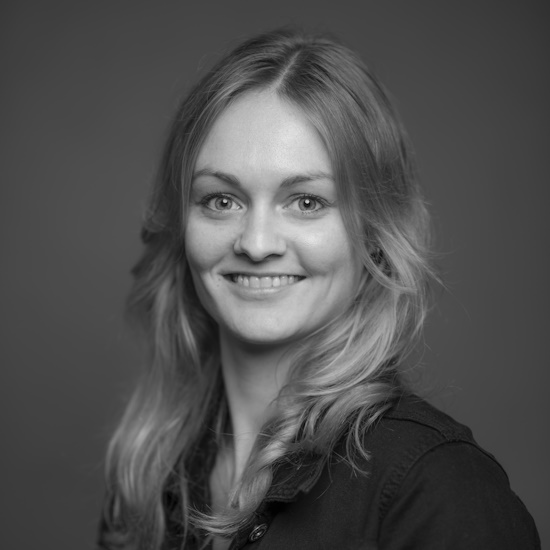
Dr Janika Reineccius, Leibniz-Institute for Baltic Sea Research Warnemünde (IOW), Germany

Dr Janika Reineccius, Leibniz-Institute for Baltic Sea Research Warnemünde (IOW), GermanyJanika Reineccius is a PostDoc at the Leibniz Institute for Baltic Sea Research in Warnemünde, Germany (IOW). She received her Bachelor of Science at the HS Bonn-Rhein-Sieg, Germany, in 2016, where she worked in the environmental analytics lab. After her bachelor's thesis, she moved to the German coast and studied chemistry at the University of Rostock. Here, she completed her master's thesis and started her PhD at the Department of Marine Chemistry at the IOW in 2019. In her PhD, she focused on microplastic detection methods for marine samples, long-term observations of microplastics in the marine environment, and weathering processes of microplastics in the aquatic environment. She finally finished her PhD in May 2023. Motivated to raise awareness of the problem of severe microplastic pollution in the oceans, she has already published four peer-reviewed first-authored papers and mentored young scientists with two completed bachelor's and one master's thesis. |
| 11:30-11:45 |
Discussion
|
| 11:45-12:15 |
Should we care about plastic in sediments?
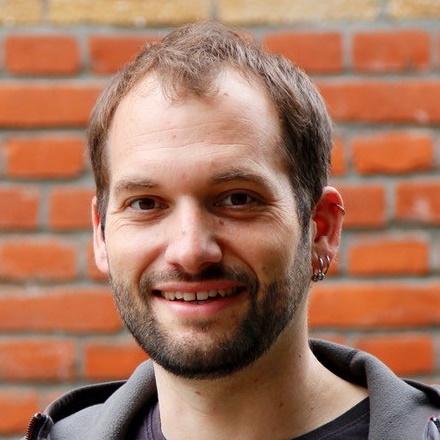
Dr Florian Pohl, University of Plymouth, UK

Dr Florian Pohl, University of Plymouth, UKFlorian Pohl is an early-career researcher studying the transport of plastics in sedimentary environments in order to predict potential accumulation points and associated ecological risks. He graduated in Earth Science at the University of Bonn in 2014 and received his PhD from Utrecht University in 2019. In his PhD, Dr Pohl combined flume experiments with outcrop studies to investigate sediment transport processes in deep marine environments. In following postdocs at Utrecht University and Durham University, Dr Pohl tested in flume experiments how submarine gravity flows transport and bury microplastics and investigated in a field study the dispersal of microplastics in a natural canyon system on the deep seafloor. In 2021, Florian Pohl joined the International Marine Litter Research Unit at University of Plymouth to study the transport and accumulation of tyre wear particles in nearshore environments. |
| 12:15-12:30 |
Discussion
|
Chair
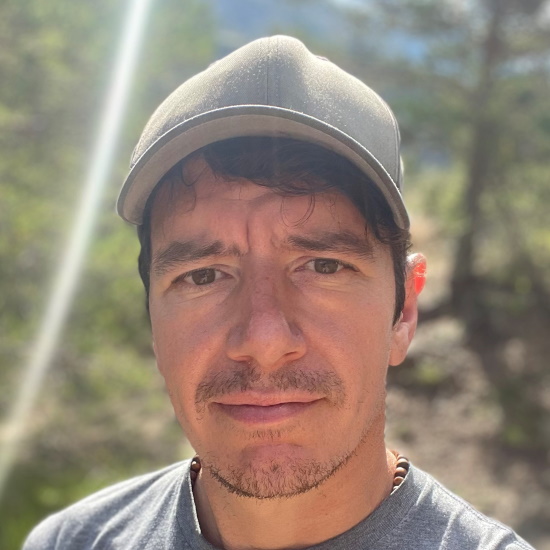
Dr Ian Kane, University of Manchester, UK

Dr Ian Kane, University of Manchester, UK
Ian is a geologist and sedimentologist interested in how sediment, including mineral grains, organic fragments and anthropogenic material (such as microplastic), is moved across Earth’s surface and where it ends up. His main focus is on deep-marine environments which are the ultimate sinks for much of this sediment. Ian leads the SedResQ research group at the University of Manchester, working on a range of topics broadly revolving around the transport of sediments from terrestrial environments to the coast and their transfer into deep-marine basins; a central theme is the linkage of gravity-driven sedimentological processes to the deposition of natural and anthropogenic sediments and their preservation in the stratigraphic record. Ian is Executive Editor for the new Diamond Open Access Journal Sedimentologika and was previously Editor-in Chief of the journal Sedimentology.
| 13:30-14:00 |
Molecular design principles for more sustainable plastics
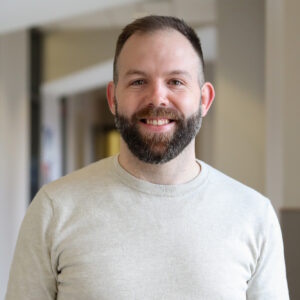
Dr Josh Worch, Virginia Tech, USA

Dr Josh Worch, Virginia Tech, USAJoshua C Worch PhD, joined the Department of Chemistry at Virginia Tech (USA) as an Assistant Professor of Polymer Chemistry in January 2023. The Worch Lab seeks to develop sustainable polymers with a holistic approach, encompassing synthesis and application to end-of-life while integrating green chemistry concepts. They are particularly interested in creating intrinsically recyclable polymers from renewable sources that feature programmable functionality and lifetime. Other research interests include the molecular recycling of legacy plastics and sustainable additive manufacturing. Worch completed his post-graduate training at Carnegie Mellon University (USA), where he developed organic semiconducting materials with Professor Kevin Noonan. He then moved across the Atlantic to the University of Warwick where he was awarded a Marie-Curie Postdoctoral Fellowship to investigate stereocontrolled click step-growth polymerizations alongside Professor Andrew Dove. The Dove group moved to the University of Birmingham in 2018, and Josh was promoted to Group Leader there in 2020 before joining Virginia Tech. |
|---|---|
| 14:00-14:15 |
Discussion
|
| 14:15-14:45 |
The multidimensionality of microplastics and how it affects their fate and transport in aquatic ecosystems.
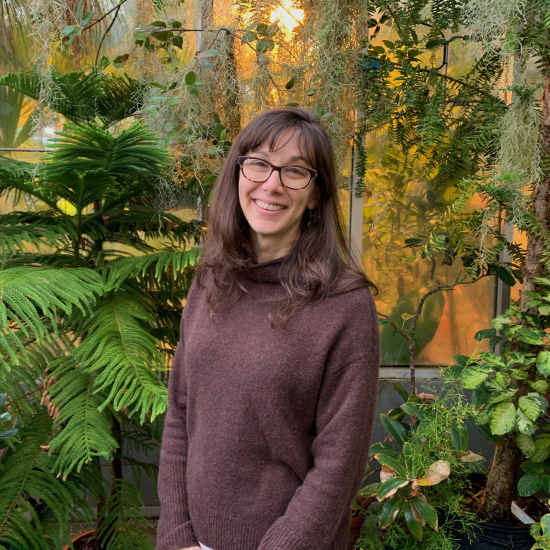
Dr Chelsea Rochman, University of Toronto, Canada

Dr Chelsea Rochman, University of Toronto, CanadaChelsea Rochman is an Assistant Professor in Ecology at the University of Toronto, co-founder of the U of T Trash Team, and a scientific advisor to Ocean Conservancy. Chelsea received her PhD in Ecology from a joint program between University of California, Davis and San Diego State University in 2013. She then was a Smith Postdoctoral Fellow in Conservation Biology. She was hired as an Assistant Professor at the University of Toronto in the Department of Ecology and Evolutionary Biology in 2016. Chelsea has been researching the sources, sinks and ecological implications of plastic debris in marine and freshwater habitats for more than a decade. She has published dozens of scientific papers in respected journals and has led international working groups about plastic pollution. In recognition of her impact, Chelsea Rochman is a recipient of the Sloan Fellowship and was the 2021 winner of the Carolyn Tuohy Impact on Public Policy Award, a University of Toronto Award of Excellence. Chelsea Rochman routinely provides testimony on Parliament Hill and is a scientific advisor to the United Nations, G7, and European Union. |
| 14:45-15:00 |
Discussion
|
| 15:00-15:30 |
Break
|
| 15:30-16:00 |
Professor Stefan Krause, University of Birmingham, UK
|
| 16:00-16:15 |
Discussion
|
| 16:15-17:00 |
Poster flash talks
|
Chair
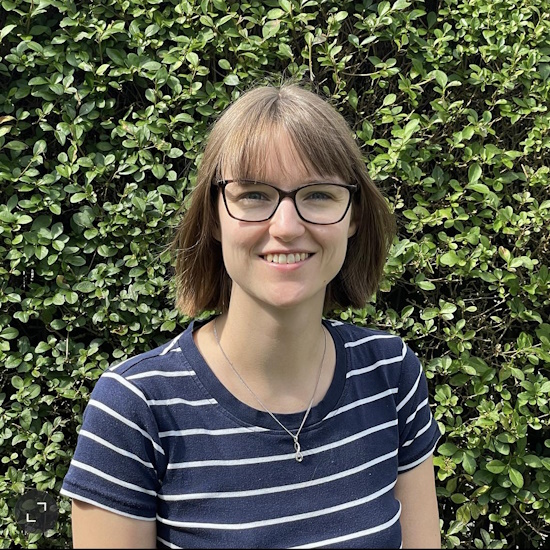
Dr Catherine Russell, University of Leicester, UK and Louisiana State University USA

Dr Catherine Russell, University of Leicester, UK and Louisiana State University USA
Catherine undertook an undergraduate Masters degree in geology at the University of Leicester and went on to complete her PhD at the University of Leeds on fluvial sedimentology in 2017. Catherine went on to be a Teaching Fellow in Sedimentology at the University of Leicester till 2021. She then undertook a Fulbright Scholarship in New Orleans for a year to research the long-term impacts that humans are having on natural surface processes across Earth Systems in the Anthropocene. As well as holding a position as Honorary Fellow at the University of Leicester, she is an Adjunct Professor at both Louisiana State University and The University of New Orleans.
| 09:00-09:30 |
Microplastics in rivers: sources, storage, and flux
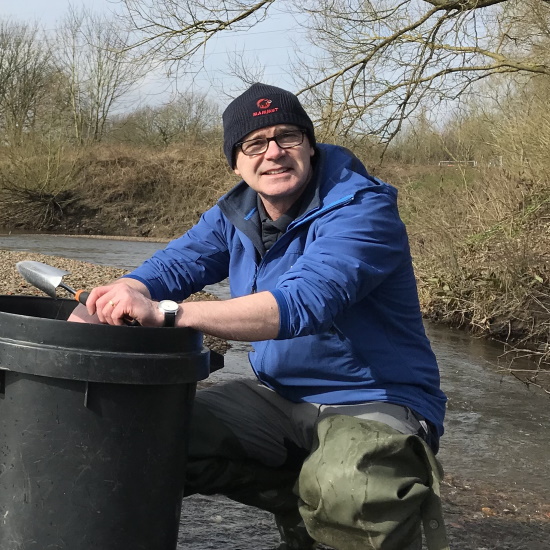
Professor Jamie Woodward, The University of Manchester, UK

Professor Jamie Woodward, The University of Manchester, UKJamie Woodward is Professor of Physical Geography at The University of Manchester. He is a Fellow of the British Society for Geomorphology and Vice-President of the Royal Geographical Society, where he sits on the Research and Higher Education Committee. His research explores river system responses to environmental change and human-river environment interactions over a range of timescales – from Pleistocene to present. He has worked on catchments across the Mediterranean and in Africa and South America. He leads the group at Manchester who discovered that UK river beds could be heavily contaminated with microplastics (Nature Geoscience 2018) and went on to show that discharges of inadequately treated wastewater into low river flows were the major supplier of these microplastics (Nature Sustainability 2021). He gave oral and written evidence to the UK Government Inquiry into River Water Quality that published its report in January 2022. He has authored two Very Short Introductions for Oxford University Press. |
|---|---|
| 09:30-09:45 |
Discussion
|
| 09:45-10:15 |
The role of hyperpycnal and turbidity flows in the transport and burial of plastic in marine sediments: examples from Southern Italy
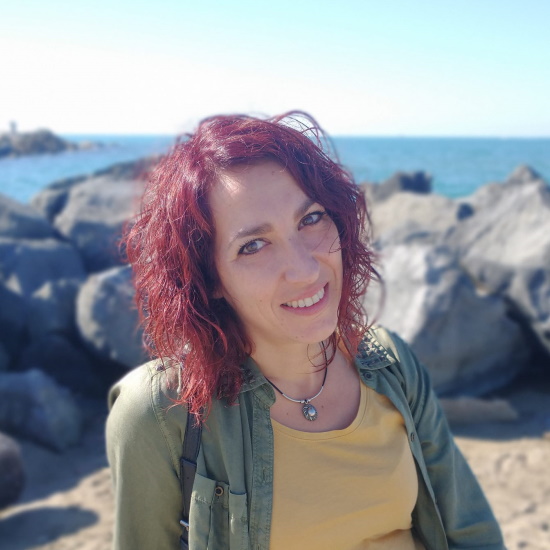
Dr Martina Pierdomenico, National Research Council (CNR-IAS), Italy

Dr Martina Pierdomenico, National Research Council (CNR-IAS), ItalyMartina Pierdomenico is a marine scientist and researcher at the Institute for the Study of Anthropic Impact and Sustainability in the Marine Environment of the Italian National Research Council (CNR-IAS). She has a broad interest in seafloor geomorphology, habitat mapping and sediment dynamics in complex settings spanning submarine canyons, volcanic islands, coralligenous and CWC build-up. She has gained experience in using and combining a wide range of methodologies, including geo-acoustic data, ROV surveys, sediment samples and oceanographic measurements to characterise the physical and biological components of the seafloor and to examine their functional relationships. Lately the focus of her research has been mainly addressed to understand the role of sedimentary processes on the dispersal and accumulation of macro and microlitter on the seafloor and the impacts on ecosystems. |
| 10:15-10:30 |
Discussion
|
| 10:30-11:00 |
Break
|
| 11:00-11:30 |
Microplastics in deep-marine environments

Dr Ian Kane, University of Manchester, UK

Dr Ian Kane, University of Manchester, UKIan is a geologist and sedimentologist interested in how sediment, including mineral grains, organic fragments and anthropogenic material (such as microplastic), is moved across Earth’s surface and where it ends up. His main focus is on deep-marine environments which are the ultimate sinks for much of this sediment. Ian leads the SedResQ research group at the University of Manchester, working on a range of topics broadly revolving around the transport of sediments from terrestrial environments to the coast and their transfer into deep-marine basins; a central theme is the linkage of gravity-driven sedimentological processes to the deposition of natural and anthropogenic sediments and their preservation in the stratigraphic record. Ian is Executive Editor for the new Diamond Open Access Journal Sedimentologika and was previously Editor-in Chief of the journal Sedimentology. |
| 11:30-11:45 |
Discussion
|
| 11:45-12:15 |
The transport and accumulation of plastics in submarine canyons and the deep sea
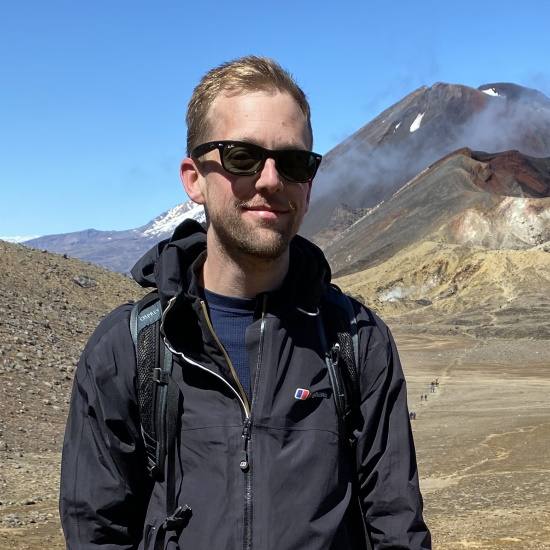
Dr Michael Clare, National Oceanography Centre, UK

Dr Michael Clare, National Oceanography Centre, UKDr Mike Clare leads the Marine Geosystems research group at the National Oceanography Centre, UK, where his research focuses on monitoring the seafloor currents that control the deep-sea fate of sediments, carbon and increasingly pollutants such as plastics. |
| 12:15-12:30 |
Discussion
|
Chair
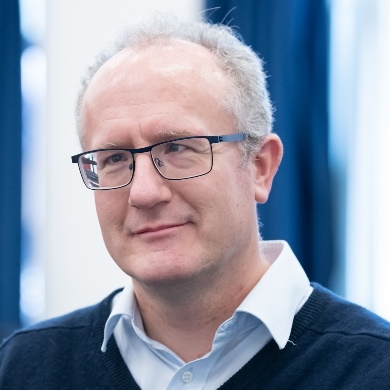
Professor Gary Hampson, Imperial College London, UK

Professor Gary Hampson, Imperial College London, UK
Dr Gary Hampson is Professor of Sedimentary Geology in the Department of Earth Science and Engineering at Imperial College London. He teaches sedimentology, stratigraphy, field geology and energy geoscience at undergraduate and postgraduate level. His research interests lie in the understanding of sediment routing, depositional systems and their preserved stratigraphy, and in applying this knowledge to the characterisation of sediment deposits and distribution. Gary’s research is grounded in the insights provided by field observations, but he is an advocate of collaborative, cross-disciplinary research that integrates different data types and analytical approaches.
| 13:30-14:00 |
Stormwater pond sediment is key storage material for microplastic debris
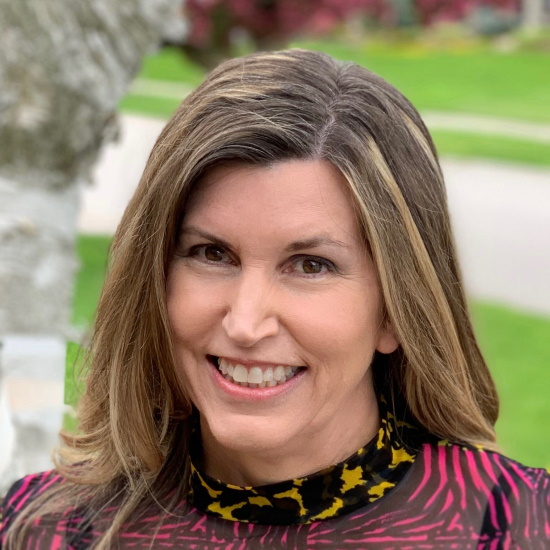
Professor Patricia Corcoran, The University of Western Ontario, Canada

Professor Patricia Corcoran, The University of Western Ontario, CanadaDr Patricia Corcoran is a Professor of Earth Sciences at the University of Western Ontario, Canada. Her research focuses on natural and anthropogenic sedimentary deposits in order to gain an understanding of Earth’s changing surface and atmospheric conditions through time. One significant element of Dr Corcoran’s research concerns the distribution, accumulation and degradation of plastic debris in sediment, water, air, and aquatic animals. She has contributed to the development of Canada’s Zero Plastic Waste Initiative and the US National Oceanic and Atmospheric Association’s (NOAA) Great Lakes Marine Debris Action Plan. Dr Corcoran’s research has been featured in many media outlets, such as National Geographic Magazine, the Huffington Post, Science Magazine, and the New York Times. In 2020, Dr Corcoran was awarded Western University’s Fallona Interdisciplinary Award for her work on the plastic pollution crisis, which involves collaboration with visual artists, humanities scholars, biologists, chemists, statisticians, and engineers. |
|---|---|
| 14:00-14:15 |
Discussion
|
| 14:15-14:45 |
Plastic as a sediment

Dr Catherine Russell, University of Leicester, UK and Louisiana State University USA

Dr Catherine Russell, University of Leicester, UK and Louisiana State University USACatherine undertook an undergraduate Masters degree in geology at the University of Leicester and went on to complete her PhD at the University of Leeds on fluvial sedimentology in 2017. Catherine went on to be a Teaching Fellow in Sedimentology at the University of Leicester till 2021. She then undertook a Fulbright Scholarship in New Orleans for a year to research the long-term impacts that humans are having on natural surface processes across Earth Systems in the Anthropocene. As well as holding a position as Honorary Fellow at the University of Leicester, she is an Adjunct Professor at both Louisiana State University and The University of New Orleans. |
| 14:45-15:00 |
Discussion
|
| 15:00-15:30 |
Break
|
| 15:30-16:00 |
Plastic pollution - what progress are we making toward solving this global environmental challenge?
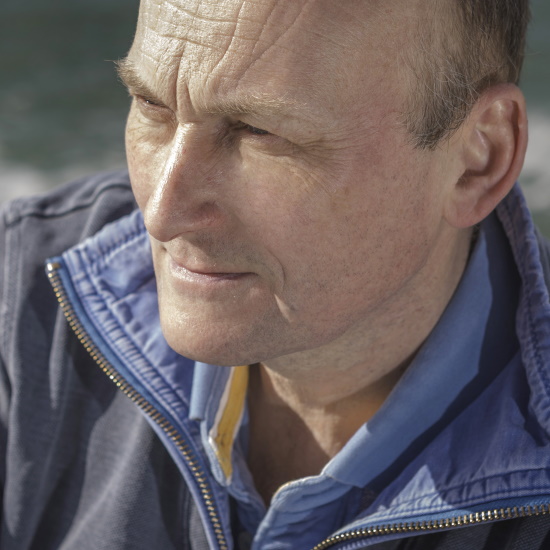
Professor Richard Thompson OBE FRSUniversity of Plymouth 
Professor Richard Thompson OBE FRSUniversity of Plymouth Richard is a Professor of Marine Biology and Director of the University of Plymouth, Marine Institute. He is a world expert on plastic pollution. In 2004, he published the first paper describing the accumulation of microscopic fragments of plastic in the environment, naming them 'microplastics'. He and his team have been at the forefront of microplastics research showing their global distribution, the potential for transfer from the gut to the circulatory system, and their role in the transport of chemicals. This pioneering work was pivotal in recognition of microplastic contamination in policy, such as Marine Strategy Framework Directive. |
| 16:00-16:15 |
Discussion
|
| 16:15-17:00 |
Panel discussion
|

